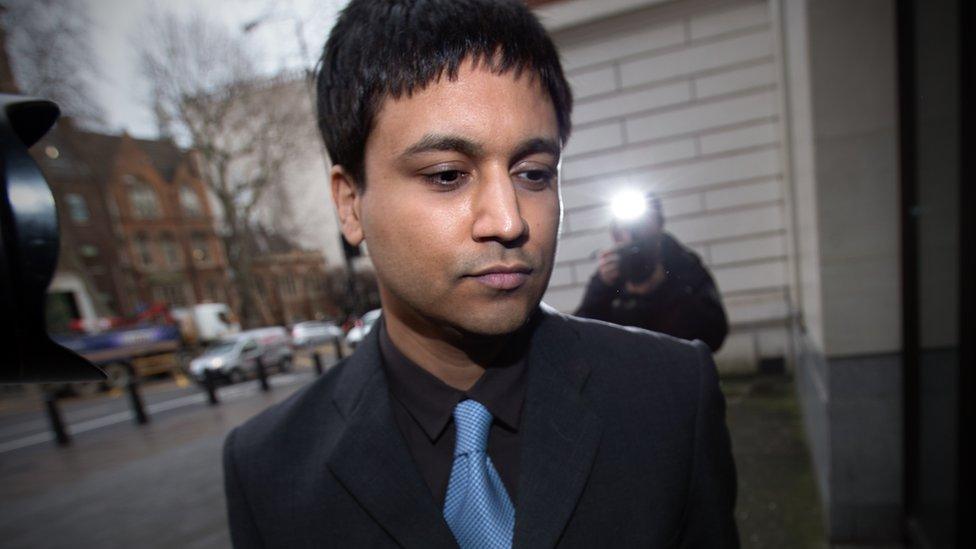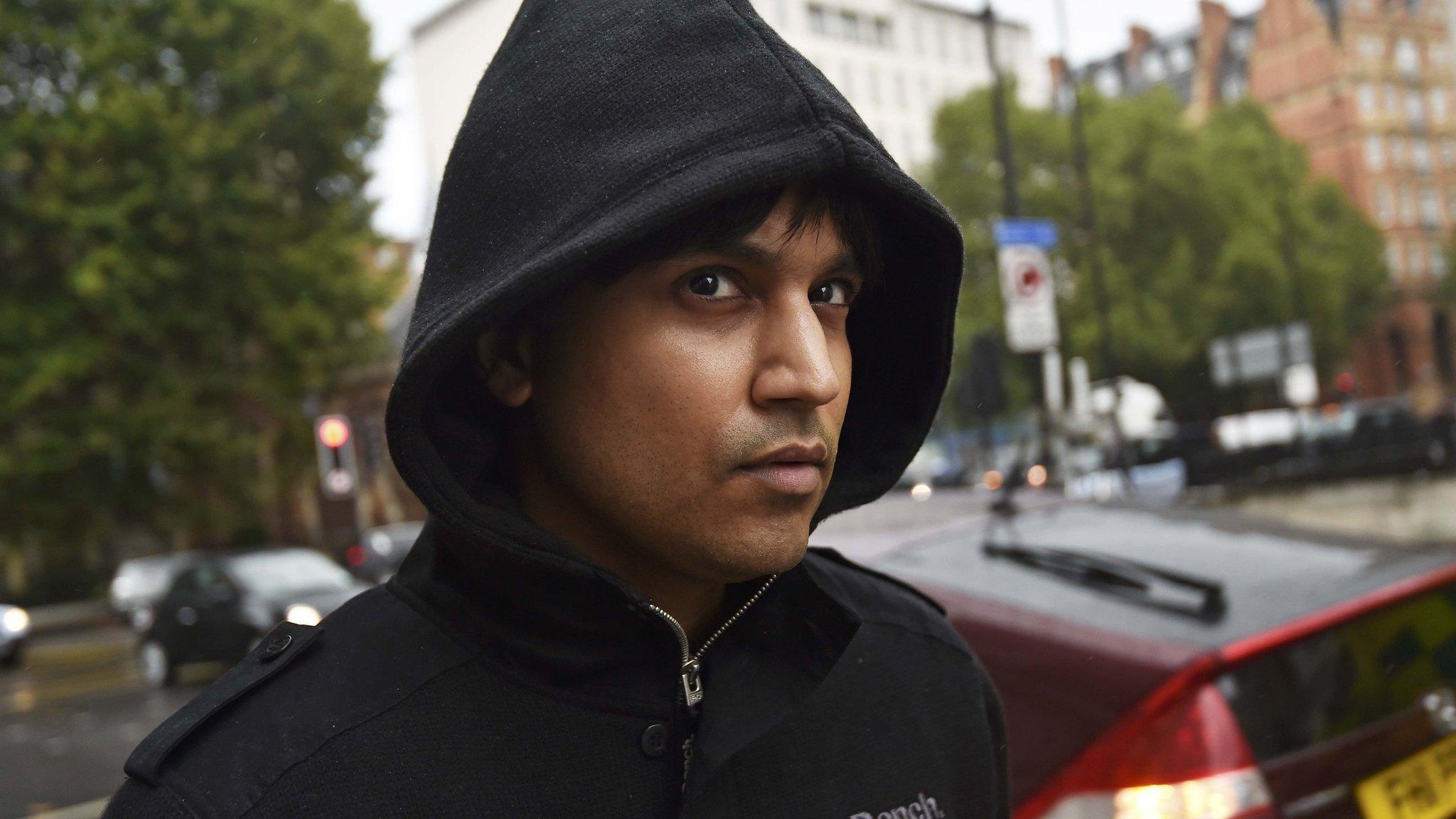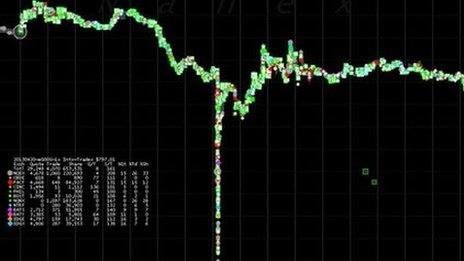'No UK crimes' committed by flash crash trader
- Published

Navinder Sarao, the "flash crash" trader, should not be extradited to the United States because the offences he is accused of were not crimes in the UK, his lawyers said on Friday.
Mr Sarao had only a "gossamer-thin" link to the 2010 Wall Street plunge, Westminster magistrates court heard.
US authorities need to prove dual criminality to extradite the 37-year-old.
That means an alleged offence must be a crime in both the UK and the US.
The judge is due to give his verdict on 23 March.
James Lewis QC, representing Mr Sarao, said: "The key question for this court is whether the conduct of Mr Sarao amounts to a crime in the UK. Quite simply it does not. There's no English crime of spoofing."
The defence case is based on Mr Sarao placing genuine orders that exposed him to risk if they were executed. He traded on the Chicago Mercantile Exchange from his parents' home in west London.
However, US authorities allege Mr Sarao is guilty of spoofing by placing large orders that manipulated the markets and then cancelling or changing them, allowing him to buy or sell at a profit.
They say he contributed to events that caused the "flash crash" on May 6, 2010, when the Dow Jones Industrial Average briefly fell more than 1,000 points, temporarily wiping out nearly $1 trillion in market value.
Mr Sarao's spoofing netted him a profit of $40m (£28m), they argue.
In his closing speech, Mark Summers QC, representing the US government, said: "The CME was a bubbling pot on the day of the flash crash and the pot bubbled over. Mr Sarao was a significant heat source."
The 22 charges that Mr Sarao faces carry sentences totalling a maximum of 380 years.
The court heard on Thursday from Professor Lawrence Harris, a former US Securities and Exchange Commission chief economist, who said traders placed and cancelled millions of orders every day.
- Published4 February 2016

- Published28 August 2015

- Published22 April 2015
